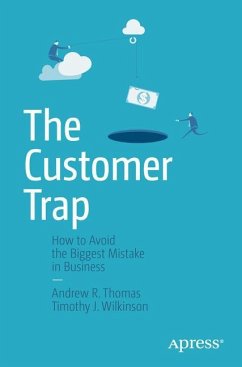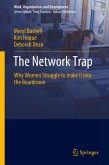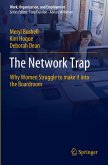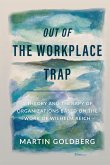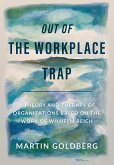American business is dysfunctional. Companies of all sizes follow the mistaken belief that their products and services are best sold through mega-customers with pervasive market reach, such as Amazon and Walmart. Far too many business leaders fail to realize until it is too late that the relentless pursuit of volume at all cost is not the key to long-term profits and success.
The Customer Trap: How to Avoid the Biggest Mistake in Business is Thomas and Wilkinson s sequel to The Distribution Trap: Keeping Your Innovations from Becoming Commodities, which won the Berry-American Marketing Association Prize for the best marketing book of 2010. The Distribution Trap contended that cracking the big-box channel is not necessarily the Holy Grail that many marketers assume it is. The Customer Trap takes this thesis to the next level by arguing that all companies, regardless of the industry there are in, should maintain control over their sales and distribution channels. Volume forgone by avoiding the mass market is more than offset by higher margins and stronger brand equity.
The Customer Trap shows that giving power to a customer who violates "the ten percent rule" sets a company up for ruin. Yet, when presented with the opportunity to push more sales through large customers, most decision-makers jump at the chance. As a result, marketing has come to resemble a relentless quest for efficiency and scale. Demands from mega-customers in the form of discounts, deals, and incentives erode the integrity of the brand and what it originally stood for. Lower margins become the norm and cost-saving compromises on quality take over. In time, the brand suffers and, in some cases, fails outright. Stark examples from Oreck Vacuum Cleaners, Rubbermaid, Goodyear, Levi s, and others illustrate the perils of falling into the "customer trap."
This book demonstrates in vivid detail how to thrive bycontrolling your sales and distribution. The authors show how many firms, such as STIHL Inc., etailz, Apple, Red Ant Pants, and Columbia Paints & Coatings, have prospered by avoiding the "customer trap" and how your company can have similar success.
The Customer Trap: How to Avoid the Biggest Mistake in Business is Thomas and Wilkinson s sequel to The Distribution Trap: Keeping Your Innovations from Becoming Commodities, which won the Berry-American Marketing Association Prize for the best marketing book of 2010. The Distribution Trap contended that cracking the big-box channel is not necessarily the Holy Grail that many marketers assume it is. The Customer Trap takes this thesis to the next level by arguing that all companies, regardless of the industry there are in, should maintain control over their sales and distribution channels. Volume forgone by avoiding the mass market is more than offset by higher margins and stronger brand equity.
The Customer Trap shows that giving power to a customer who violates "the ten percent rule" sets a company up for ruin. Yet, when presented with the opportunity to push more sales through large customers, most decision-makers jump at the chance. As a result, marketing has come to resemble a relentless quest for efficiency and scale. Demands from mega-customers in the form of discounts, deals, and incentives erode the integrity of the brand and what it originally stood for. Lower margins become the norm and cost-saving compromises on quality take over. In time, the brand suffers and, in some cases, fails outright. Stark examples from Oreck Vacuum Cleaners, Rubbermaid, Goodyear, Levi s, and others illustrate the perils of falling into the "customer trap."
This book demonstrates in vivid detail how to thrive bycontrolling your sales and distribution. The authors show how many firms, such as STIHL Inc., etailz, Apple, Red Ant Pants, and Columbia Paints & Coatings, have prospered by avoiding the "customer trap" and how your company can have similar success.

